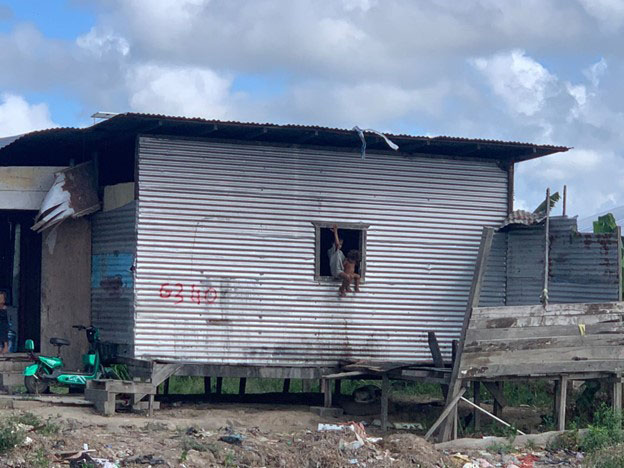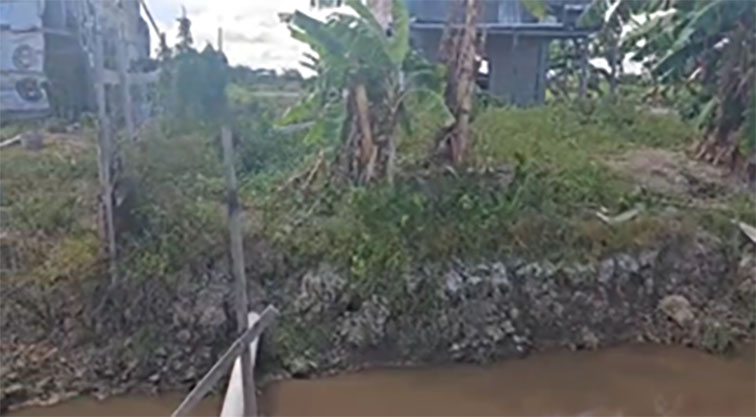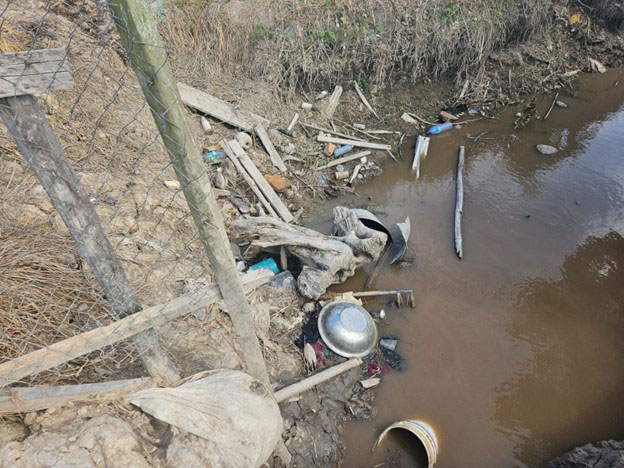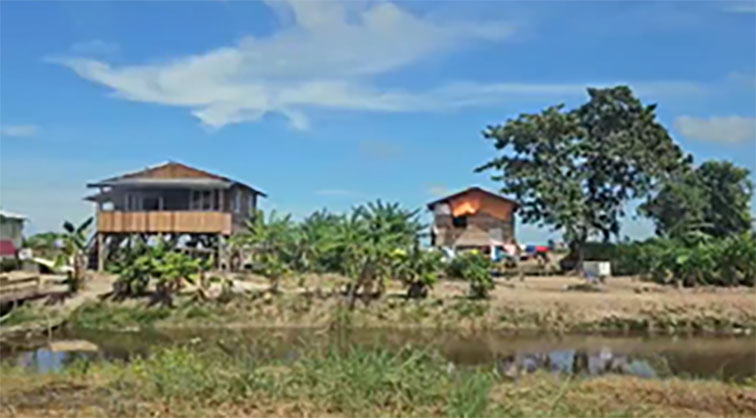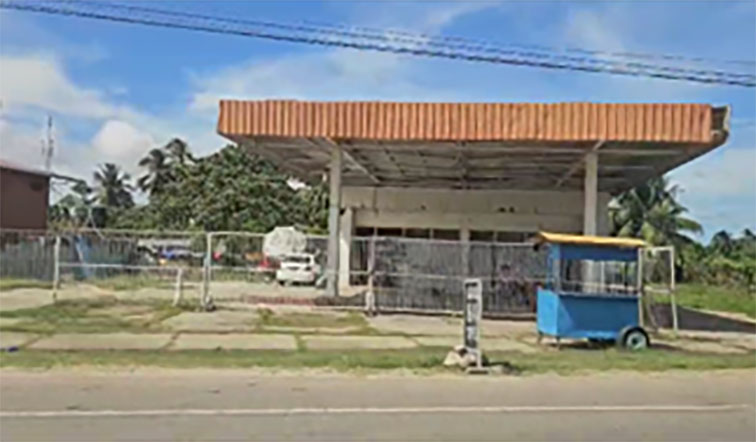-residents say they need help
By Khadidja Ba
A number of migrants from Venezuela have squatted in parts of the Ruby Backdam and Good Hope Sea Dam and this has led to problems with drainage and access to arable lands and residents there want the authorities to intervene and provide assistance.
A councillor for Ruby Backdam, who goes by the name `Romel’, highlighted to the Sunday Stabroek the influx of squatters following the economic upheaval in Venezuela.
“After what happened in Venezuela, the situation where all of them start to flee… Ruby is not far from the Atlantic so they get to come off anywhere, they don’t go all the way to Parika so they just come off on the shore and come in to Ruby. This has been happening since 2020,” the councillor explained, adding that the initial settlement began with a single family who received aid and drew others to the area. The councillor also told the Sunday Stabroek that since the migrants arrived, they have not received any government support. The assistance they receive comes from NGOs and local residents who provide hampers and food.
Baldeo Sookram, the owner of a rice field on Good Hope Sea Dam who returned in Guyana earlier this year, has expressed frustration to the Sunday Stabroek over ongoing squatting on his property, which his family has maintained since 1958.
“I came back to Guyana earlier this year, about January and this is what I saw, I complain a couple of times, like four or five times to all the ministers that we’re reaching. Everybody promises you, and they take my phone number, I even spoke to Minister Edghill when he came to open the new bridge in Ruby in August. He said he would look into it and pass the information onto whoever is supposed to be dealing with this. There was no way the Ministers couldn’t see this issue, you have to pass this area all the time, it’s right at the front,” Sookram said, referring to his futile attempts to secure government assistance in addressing the issue. In speaking with the Sunday Stabroek on Friday, Minister of Public Works Juan Edghill stated “Will check on this I don’t recall this situation.”
Sookram detailed how squatters obstruct access to vital drainage systems on his property, which are essential for rice cultivation. “Normally when you do rice work, you flood the field to prepare it… but after a time, you have to blow out the water,” he explained. He recounted a recent incident where he faced threats from squatters while trying to manage the drainage system.
“They threatened me, and so I got the police involved,” he said, emphasizing that even police mediation has not resolved the conflict.
A local shop owner who asked to remain anonymous recalled an incident involving a migrant who stole his duck. “When I went to retrieve my duck, the man who lives in a shack over the road threatened me with a cutlass,” he told SN during its investigation on October 23rd, 2024.
During the visit on Wednesday to the settlement, the Sunday Stabroek witnessed the dire conditions under which many migrants are living. In a small area with just seven houses, this reporter counted at least 27 children, estimating that around 50 children reside in the entire settlement, many of whom were swimming, playing with animals and sitting on the steps to the “houses”. Strikingly, it appeared that none of the children were attending school, despite some of them being able to speak English. It’s unclear whether these migrants are part of the 1,114 identified earlier this year by Minister of Home Affairs Robeson Benn in Region Three, especially considering the conditions they are currently living in.
The squalid conditions were alarming. The same trench where several teenage migrants were seen swimming also served as a makeshift waste disposal area. This trench, Sookram identified as the same one that the water from the fields drains out into, raising serious health concerns. Sookram went on to explain that if the water is high, it can drain back into the fields, if they open the koker/sluice. He also explained to the Sunday Stabroek that on multiple occasions, he has noted the migrants opening the koker to have the water flow to them. Some of the migrants have been involved in cattle rearing, and according to both Sookram and Romel “They slaughter the sheep, they slaughter the pig in the middle walk trench, everything goes back in the rice”.
Residents are calling on the government to intervene decisively. “The government needs to find somewhere to put these people,” Sookram remarked, emphasizing the necessity for a structured approach to address the needs of both the squatters and landowners. “You can’t have them… staying on my or other people’s land,” he added.
According to Sookram, the migrants are also squatting in the gas station at the head of the road to go into the back dam.
Just last month, the Sunday Stabroek reported on some residents of Linden having expressed growing unease over the number of Venezuelan migrants in the town living in squalid conditions.
